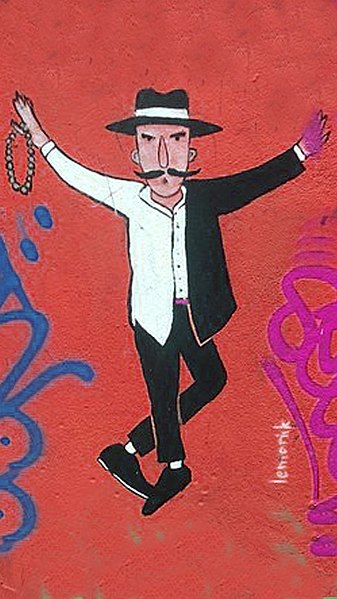Roza Eskenazi was a Jewish-Greek dancer and singer of rebetiko, Greek folk music, Kanto and Turkish folk music born in Istanbul, whose recording and stage career extended from the late 1920s into the 1970s.
Eskenazi, 1932
K. Lambros, R. Eskenazi, A. Tomboulis (Athens, circa 1930)
D. Semsis, A. Tomboulis, R. Eskenazi (Athens, 1932)
Rebetiko, plural rebetika, occasionally transliterated as rembetiko or rebetico, is a term used today to designate originally disparate kinds of urban Greek music which in the 1930s went through a process of musical syncretism and developed into a more distinctive musical genre. Rebetiko briefly can be described as the urban popular song of the Greeks, especially the poorest, from the late 19th century to the 1950s, and served as the basis for further developments in popular Greek music. The music, which was partly forgotten, was rediscoved during the so-called rebetika revival, which started in the 1960s and developed further from the early 1970s onwards.
Rebetes in the Karaiskaki Square, Piraeus (1933)
Dimitrios Semsis (lyra), Agapios Tomboulis (banjo) and Roza Eskenazi, the Smyrna Trio (Athens, 1932)
Trixordo or three course (three double string) bouzouki
Street art photo of a Koutsavaki (κουτσαβάκης) in Athens






